MOON KNIGHT – Season One
A London museum gift shop worker discovers he's been granted the powers of an Egyptian moon god, but soon realises his newfound powers can be both a blessing and a curse to his mental health.
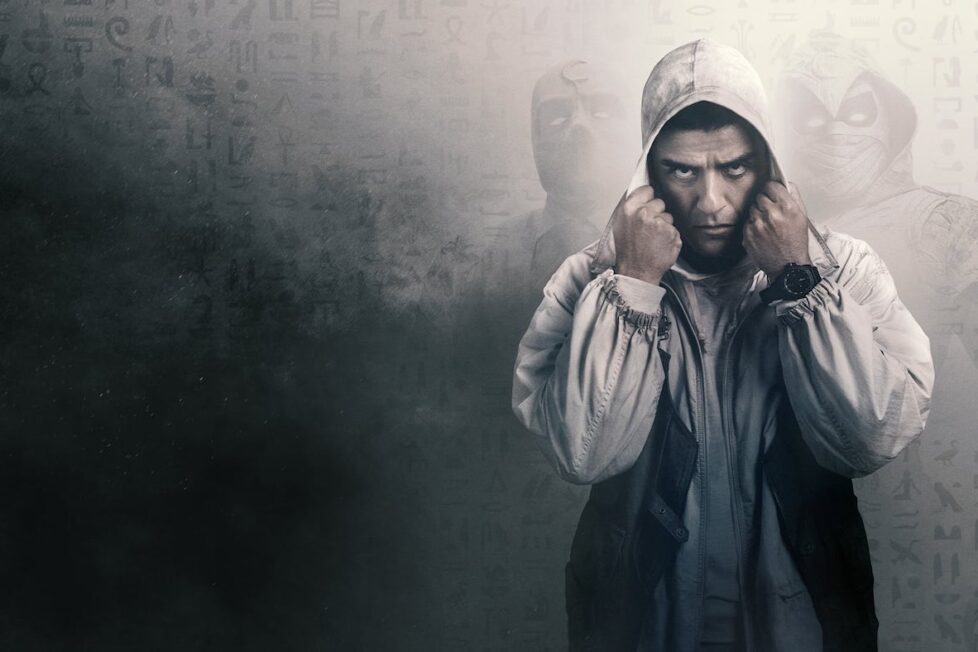
A London museum gift shop worker discovers he's been granted the powers of an Egyptian moon god, but soon realises his newfound powers can be both a blessing and a curse to his mental health.


Until now, Marvel Studios’ television shows have deepened characters often pushed into the background of enormous spectacle on the big screen. The best example of this is Wanda Maximoff and Vision, two characters whose romance blossomed off-screen between Avengers movies, so it fell on the actors to sell the love their characters had for each other. They were given an entire Disney+ miniseries to themselves in WandaVision, allowing for deeper and richer material because of the format’s extra time and focus. That all changes with Moon Knight, which is the first time Marvel’s introduced a superhero on the small screen, meaning the character’s origin story benefits from the six hours in which to tell it… but he’s not going to be saving the universe in a manner requiring $150M of VFX.
Based on obscure comic-books first published in 1975, Moon Knight has been adapted for live-action with a few changes to the source material. Here, neurotic Steven Grant (Oscar Isaac) lives an unremarkable life as a London museum gift shop worker, shackling himself to bed each night to prevent sleepwalking. An element of amnesia and ‘missing time’ further complicates Steven’s life, as he struggles with his mental health and starts to wonder if a voice in his head and visions of an avian creature wreathed in bandages are symptoms of dissociative identity disorder (DID), and the “Marc Spector” personality speaking to him through reflections has become the avatar of Egyptian moon god Khonshu (voiced by F. Murray Abraham).
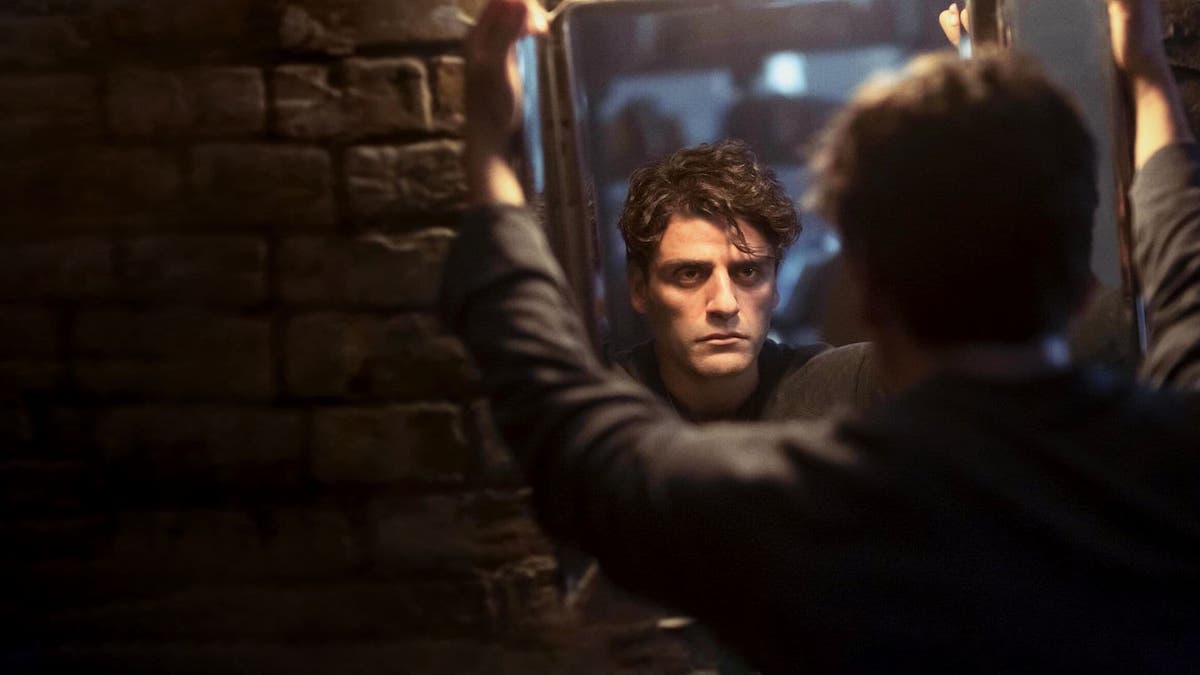
It’s a convoluted concept, which is the main reason Moon Knight has never managed to work on the page too well. It would be like Dr Jekyll discovering Mr Hyde is also possessed by a deity that grants him superpowers. It’s putting a hat on a hat. The best superheroes have relatable backstories and simply concepts (e.g. an ordinary teenager is bitten by a radioactive spider and gains extraordinary abilities), but Moon Knight lacks that same clarity. It’s something the TV show’s creator Jeremy Slater leans into, as having a lead character unsure of his own mind makes viewers want to clear up all the confusion. The problem is that Moon Knight’s answers aren’t particularly good and don’t fully explain a lot of things, like how Marc behaves as if Steven is a new development whose emergence is suddenly ruining his crime-fighting partnership with Konshu, but later it’s revealed Steven’s been in his head since childhood. There’s a lot that doesn’t fit together and the series ends up feeling half-baked as a result.
Another issue is the way Steven’s condition is portrayed sacrifices a lot of fun for novelty value, as the Moon Knight mostly avoids the tradition of characters with multiple personalities to be a chance for actors to perform numerous roles on camera, differentiating each one through accents and body language. M. Night Shyamalan’s Split (2016) was enjoyable because James McAvoy inhabited numerous people within the same body, so audiences could marvel at his acting range and find it brilliantly eerie whenever one ‘person’ transitioned into another right.
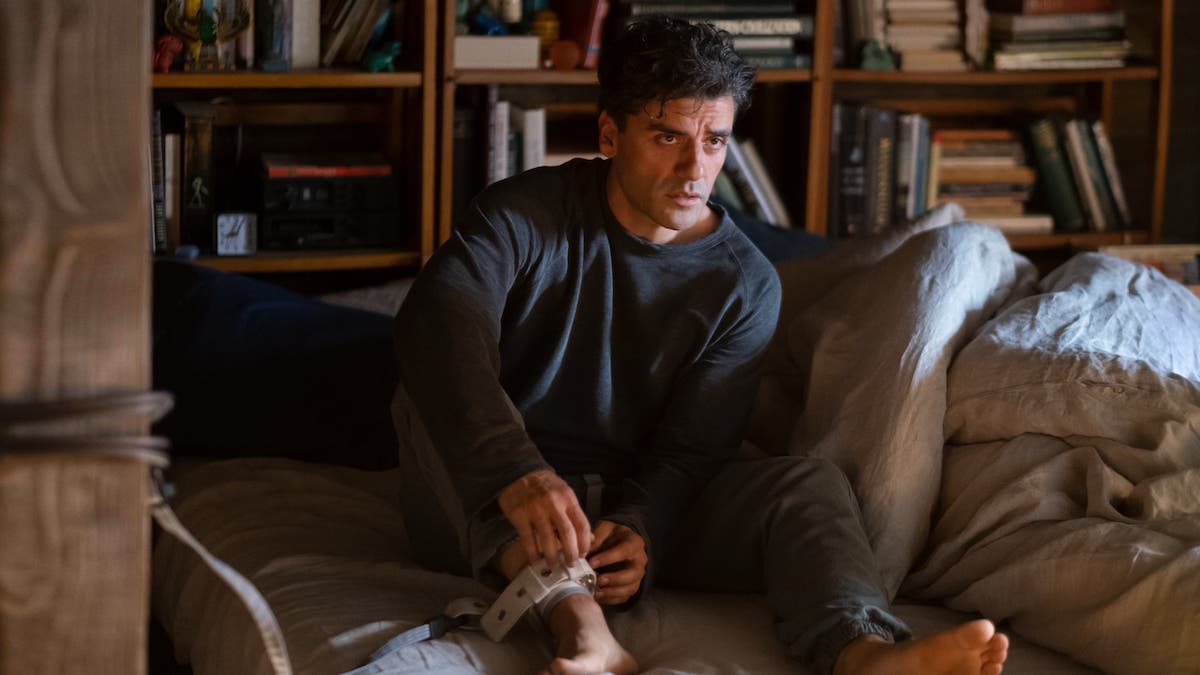
Moon Knight only has two personalities for Isaac to go between and they’re both pretty broad caricatures (nerd and, uh, Poe Dameron). But while he does a great job crafting two distinct people, the show itself goes to great lengths to show only us one character at a time, before having them share the screen like Ed Norton and Brad Pitt in Fight Club (1999).
Mostly, whenever either Steven or Marc are in control of their shared body, the other personality is shown as being locked away in reflections to symbolise a conversation happening in their mind. That’s a totally valid and interesting way to do things for a visual medium, of course, but it soon comes to feel like Steven doesn’t so much have another personality as an identical twin whose ghost occasionally possesses him. Strangely, in the finale, another character comes to suffer from the same condition as Steven/Marc and it’s portrayed in a more traditional manner, with the actor randomly flipping from one personality to the other, and it’s far more entertaining and impressive to behold than five hours of Oscar Isaac talking to mirrors, puddles, and windows has been.

Ignoring the troublesome way Moon Knight wanted to visualise DID, as a superhero story it’s straightforward stuff only really given some flavour because Egyptian mythology is always interesting. Essentially, Marc is trying to prevent Arthur Harrow (Ethan Hawke) from releasing the goddess Ammit to exact judgement on mankind by instantly balancing the good and evil contained in their souls, only with Steven initially getting in the way.
There’s an interesting wrinkle that Harrow was an erstwhile avatar of Konshu before Marc, and the way Konshu is handled gives him enough ambiguity to make viewers question his motivations. And it’s always appreciated whenever the villain’s goals and motivations are understandable on some level, so he’s not just a two-dimensional baddie trying to take over the world or something as cliched. Hawke is also an interesting actor more commonly appearing in low-budget independent films and the occasional mid-budget horror. Isaac apparently convinced him to take this role and Harrow benefits from Hawke playing him as a misguided David Koresh type. But while Harrow has interesting aspects to his character, he’s ultimately not especially fun or threatening as a villain, so his interactions with Steven/Marc become a little tedious.
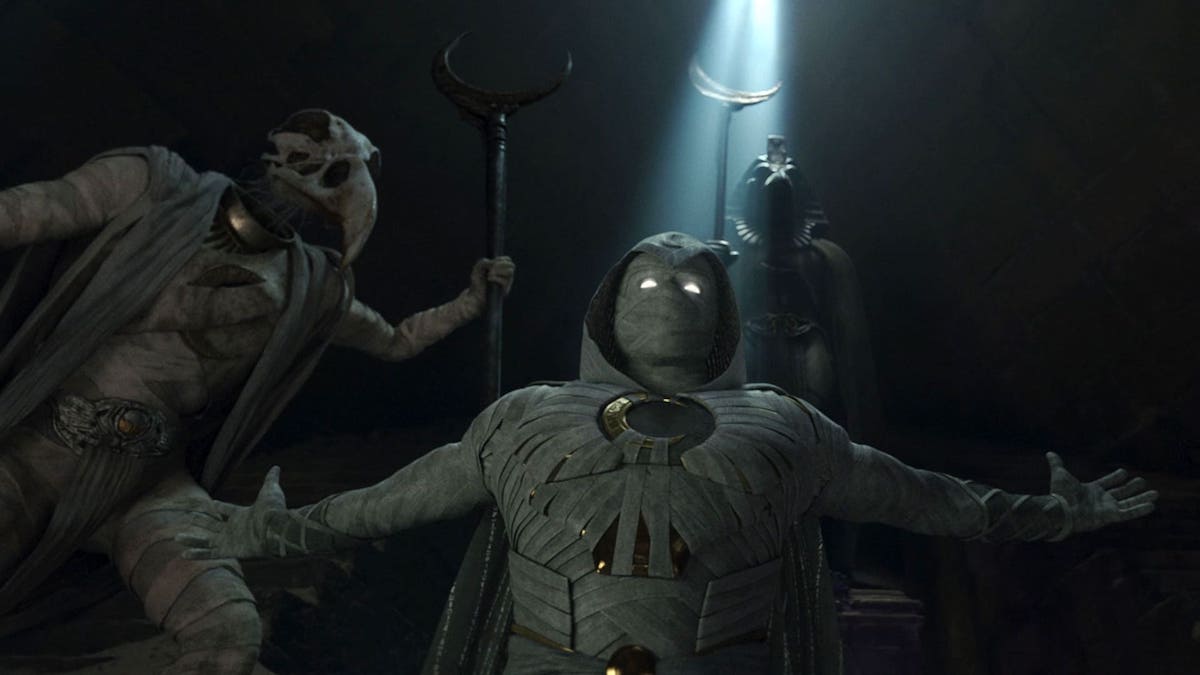
On the upside, Layla El-Faouly (May Calamawy) is a welcome addition as Marc’s archaeologist wife and adventurer, bringing much-needed fun and romance to the second half of the story. More could have been done with the prospects of a “love triangle” between Marc, Layla, and Steven (one man and woman, but three people), but Moon Knight has too many balls in the air at any one time. The series also does well in terms of representation (Egyptian director Mohamed Diab helms four episodes, while Egyptian composer Hesham Nazih provides the music), and no doubt an indie-minded actor like Hawke was pleased that filmmakers Aaron Moorhead and Justin Benson (The Void, The Endless) directed two episodes.
The climax of the fourth episode is unexpected enough to make you sit up and reconsider your opinion on Moon Knight, and the imagination of the entertaining and expensive-looking fifth episode was appreciated, but overall it’s easy to see why Moon Knight has never quite worked in over 40 years and this TV show is similarly unconvincing. A superhero with multiple personalities sounds like a cool idea, and ditto a superhero with skills granted by an Egyptian moon god, but together they create problems the writers don’t fully solve. I only hope season 2 realises it may be a better idea to let Oscar Isaac evoke these characters through sheer performance, not using split-screen interactions with himself, and for a stronger villain to emerge that warrants Moon Knight’s attention.
USA | 2022 | 6 EPISODES | 2.39:1 | COLOUR | ENGLISH

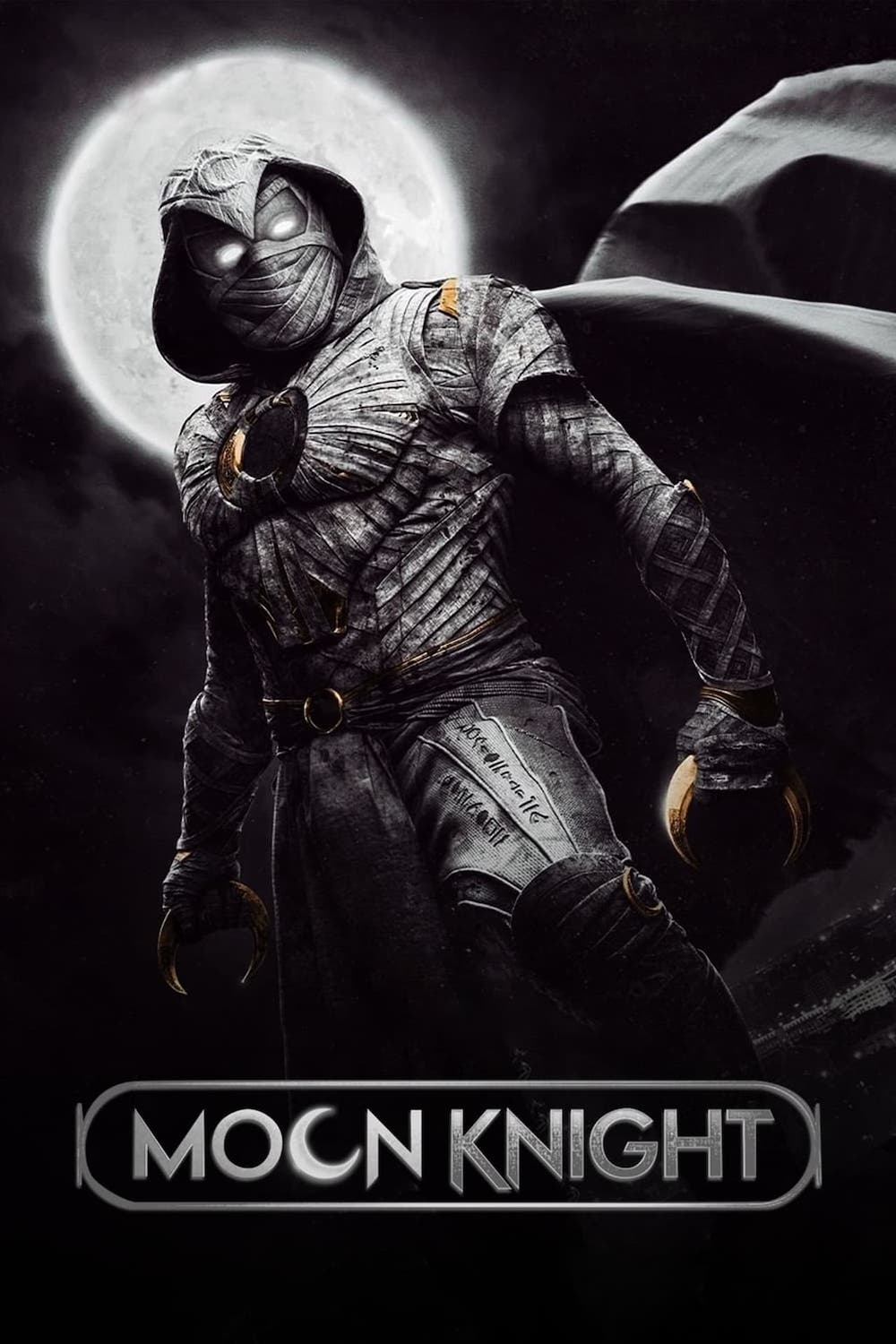
writers: Jeremy Slater, Michael Kastelein, Beau DeMayo, Peter Cameron, Sabir Pirzada, Rebecca Kirsch, Matthew Orton, Danielle Iman.
directors: Mohamed Diab & Aaron Moorhead and Justin Benson.
starring: Oscar Isaac, Ethan Hawke, May Calamawy, Karim El Hakim, Ann Akinjirin, David Ganly & F. Murray Abraham (voice).
